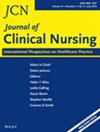Stakeholders' Actions, Responsibility and Limitations in Support of Nursing Students Experiencing Workplace Violence During Clinical Placement: The Clinical Facilitators View
Abstract
Background
Workplace violence toward nurses is a significant global issue affecting their mental and physical health, job satisfaction and performance, and can ultimately lead to decisions to leave the profession. As the least experienced caregivers in the health workforce, nursing students are particularly vulnerable to experiencing workplace violence and are often powerless to deal with WPV incidents.
Aim
To examine clinical facilitators' insights into how to support nursing students following experiences of workplace violence during their clinical placement.
Design
An exploratory, descriptive qualitative design.
Methods
Data were collected between September and November 2022 using semi-structured interviews with 11 clinical facilitators working in South Australia, each lasting about 1 h. The interviews were transcribed verbatim and analysed using thematic analysis.
Results
Clinical facilitators identified that many students found support and solace from avenues outside of the CFs and university staff, including ward staff, family, friends and other students. However, students are limitedly prepared for the realities of clinical work, particularly concerning workplace violence, and that the university supports available were reactive to events in the clinical environment.
Conclusion
Addressing workplace violence requires systemic changes, better support for clinical facilitators and a steadfast commitment by all stakeholders to student safety.
Implications for the Profession
Solid collaborations between universities and clinical facilities with clear guidelines and direct lines to address potential violence issues are essential. Zero-tolerance policies regarding workplace violence could provide a safer environment that promotes nursing student learning outcomes, safer placements, better student experiences and optimal healthcare provision.
Reporting Method
COREQ guidelines were adhered to for reporting qualitative research.
No Patient or Public Contribution
This paper specifically explores the perspective of the clinical facilitator's experience of WPV in their role of supporting student learning during clinical placement.

 求助内容:
求助内容: 应助结果提醒方式:
应助结果提醒方式:


